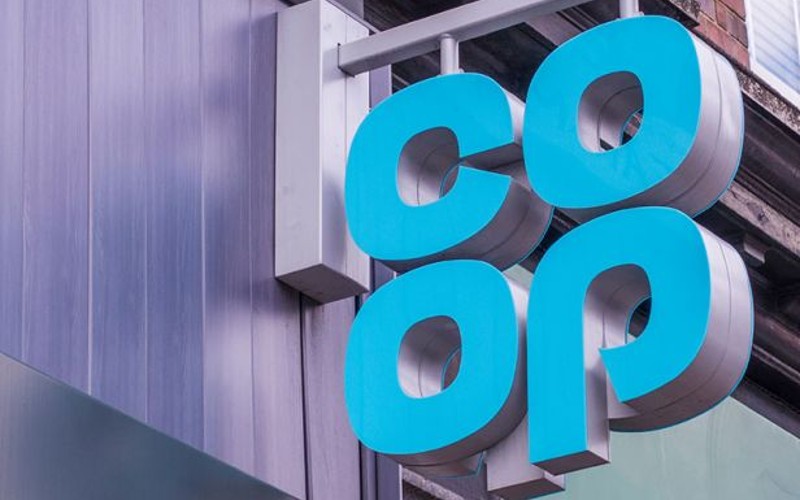The Co-operative Group has revealed the massive impact of this year’s cyber attack on its half-year results.
The attack, described as ‘sophisticated and malicious’, led the retail giant to shut down several systems temporarily, resulting in a total estimated first-half impact of £80m across profit and cashflow, including £20m of direct costs.
Statutory operating results swung to a £56m loss – compared with a £35m profit in H1 2024 – with profit before tax also falling from £58m profit to a £50m loss.
Group revenue for the first half of 2025 was £5.48 billion, compared with £5.6bn a year earlier, a decline of 2.1%.
Excluding the estimated £206 million trading hit from the cyber incident, revenue grew 1.5%.
Food sales fell 1.6% to £3.62bn but were up 2.9% when adjusted for the disruption.
B2B revenues slipped 3.9% to £1.65bn, while life services posted a 2.4% increase to £210m, or 6.5% on an underlying basis.
The group recently made significant leadership changes designed to accelerate growth.
“The first half of 2025 brought significant challenges, most notably from a malicious cyber attack,” said Debbie White, chair of the Co-op.
“Our balance sheet strength and the magnificent response of our 53,000 colleagues enabled us to maintain vital services for our members and their communities.
“We must now build our Co-op back better and stronger to meet the challenges and opportunities that lie ahead.”
GlobalData reveals major LSE update following failed takeovers
Chief executive, Shirine Khoury-Haq, added: “Over the past three years, we’ve built a stronger and more resilient Co-op – one that’s better able to navigate the headwinds that all businesses are facing.
“When we experienced a significant cyber attack, that financial strength allowed us to respond as a member-owned organisation.
“I’m very proud of how we reacted: we kept trading, prioritised colleagues and vulnerable communities, and launched a partnership with The Hacking Games to tackle youth disenfranchisement – the root of many cyber threats.
“The cyber attack highlighted many of our strengths. But more importantly, it also highlighted areas we need to focus on – particularly in our Food business.
“We’ve already started on this journey, refining our member and customer proposition, making structural changes to our business, and setting our Co-op up for long-term success.”
Investment of £131m was made in the six months, with plans to open 30 new stores in the second half of the year.
Growth momentum continued in the life services division, with funeral plan sales up 17.4% year-on-year and travel insurance sales doubling.
In insurance more broadly, car policies grew 49% and home policies by 43%.
Franchise expansion accelerated to 59 stores from 42 a year earlier, while wholesale penetration of Co-op branded products rose to 93% among partners.
The group also continued to expand its convenience proposition, with nearly 200 new own-brand product launches and further roll-out of ‘On the Go’ microstores featuring hot food and deli counters.
Quick commerce coverage has expanded to 86% of the UK population through partnerships with Uber Eats, Deliveroo, Just Eat and Co-op’s own platform.
Structural changes also include the recent appointment of former Push Doctor CEO, Wais Shaifta, who has joined as chief growth officer, having served seven months as a non-executive director.
Co-op Food managing director Matt Hood has been appointed chief commercial and logistics officer, heading a newly created division, while Katie Secretan, managing director of Co-op Wholesale, will now report directly to Khoury-Haq and join the operating board.


